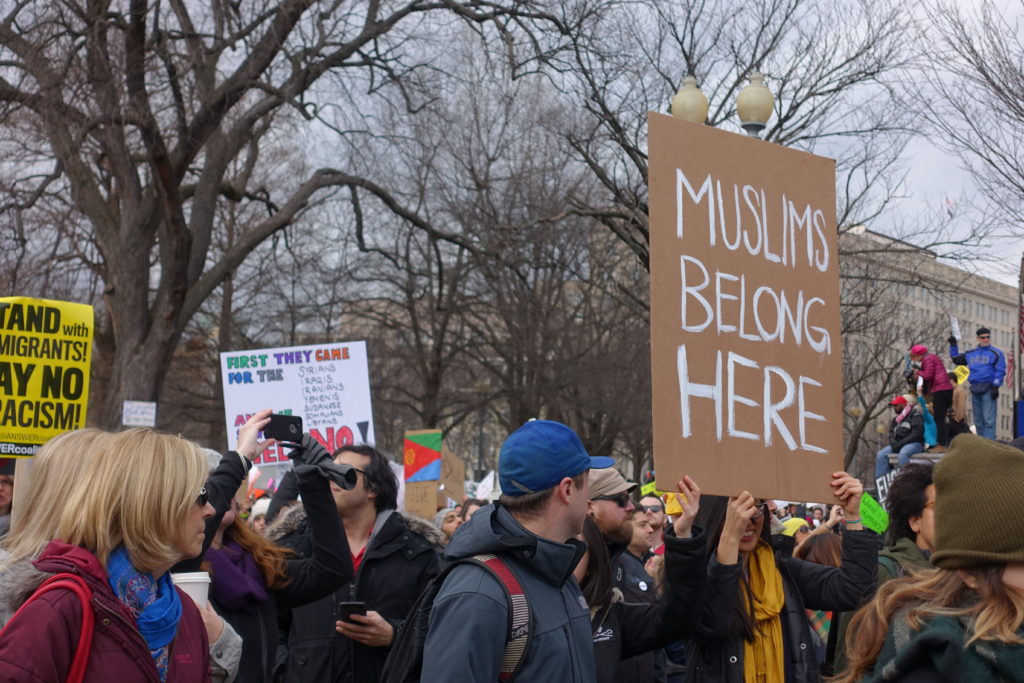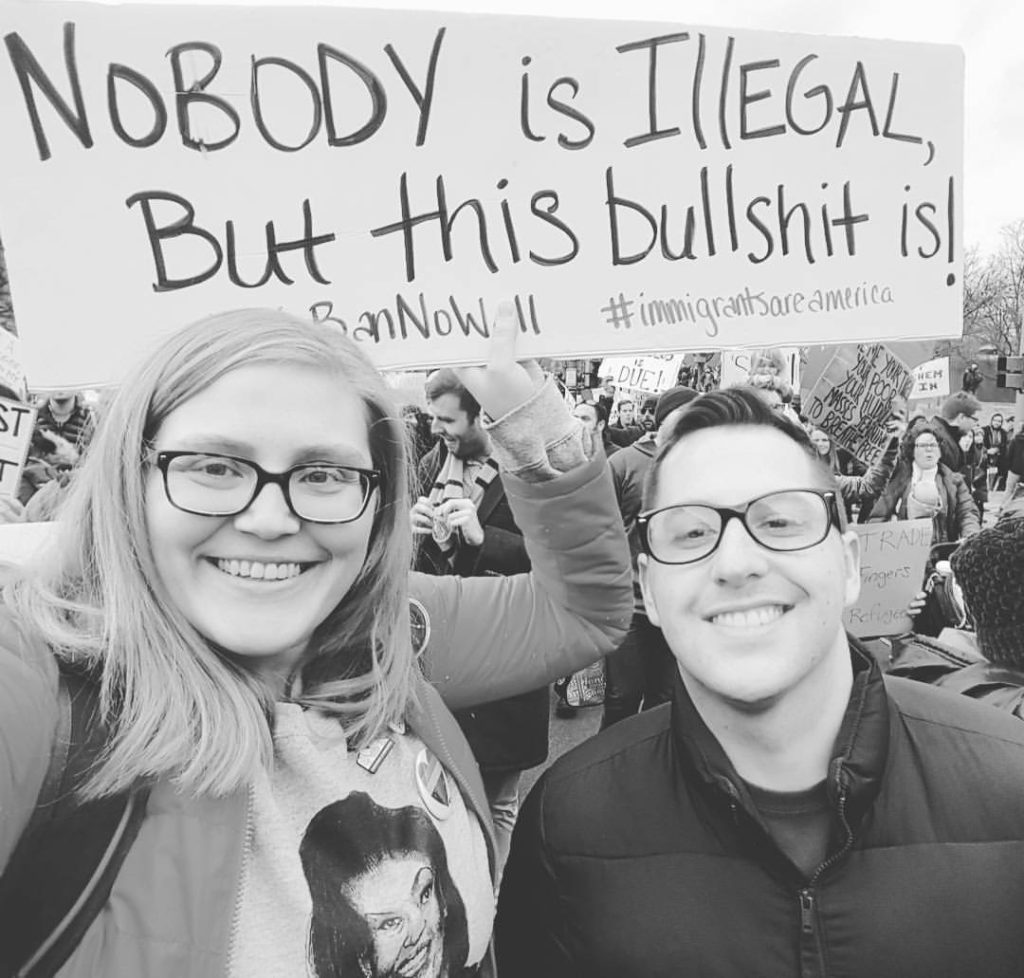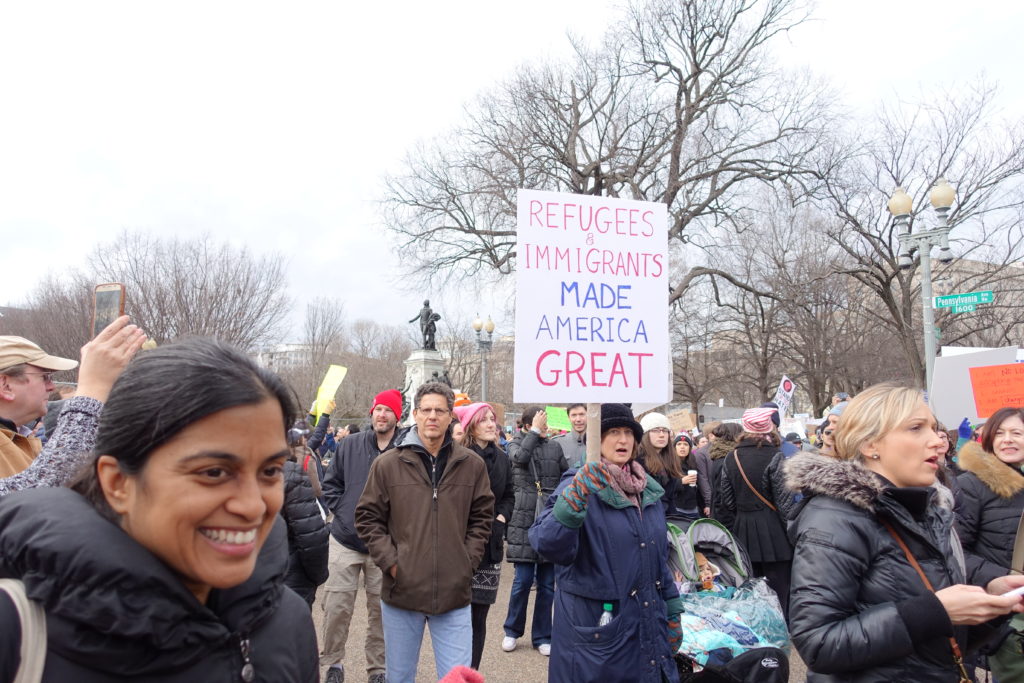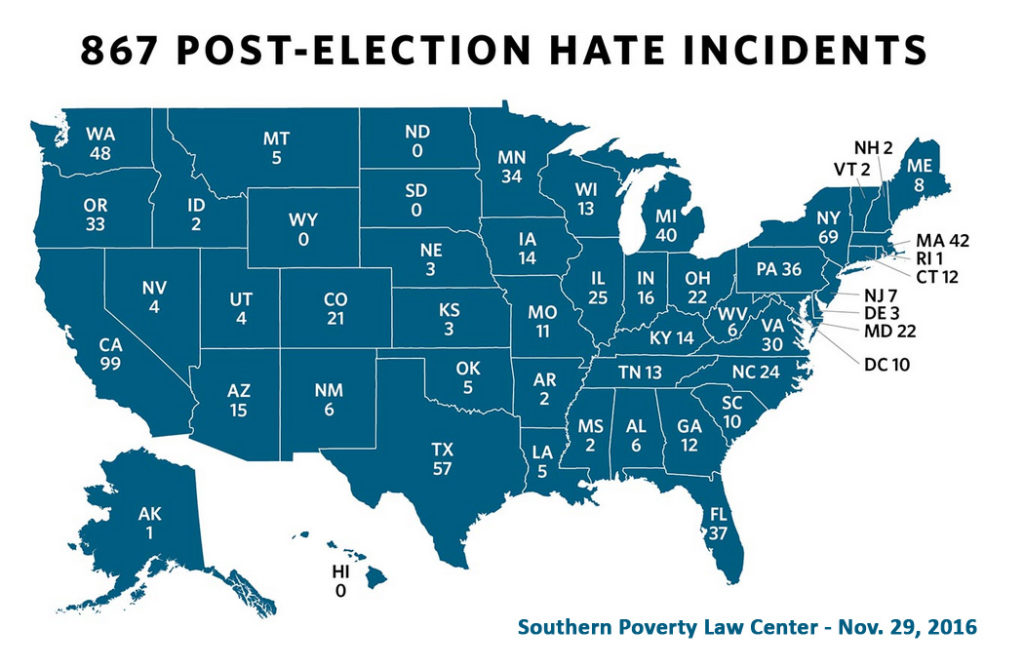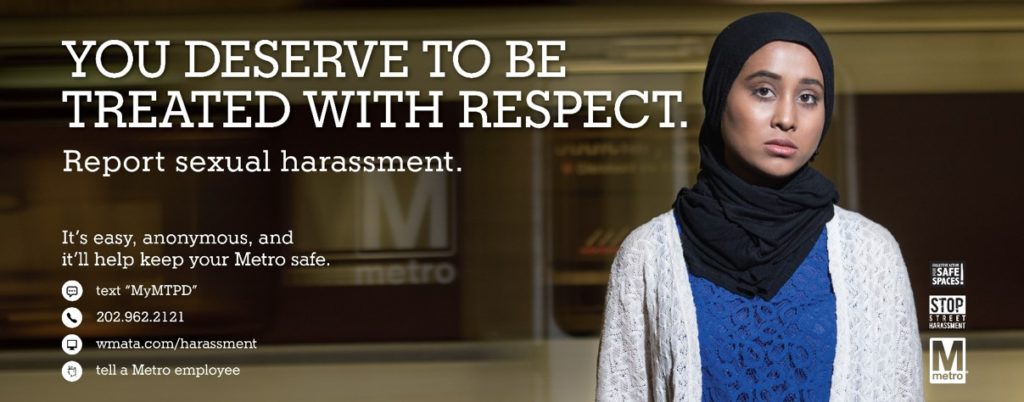Libby Allnatt, Phoenix, AZ, USA, SSH Blog Correspondent

Trigger Warning – Attempted Rape
As the United States grapples with the misogyny, racism and bigotry that was seemingly validated with the election of Donald Trump, it is more important than ever to not normalize sexual violence.
The presidential election of 2016 rattled much of the nation.
It was supposed to be her.
On January 20, 2017, we were supposed to be inaugurating our first woman president.
But that’s not what happened. If you are outside the United States, I would venture to guess you’re aware of the trash fire that has transpired here since the country not only condoned the candidacy of an admitted sexual predator, but handed him the White House on a silver platter.
The election threatened the livelihood of many groups: Muslims, Mexicans, Jews, the LGBTQ+ community, just to name a few. These threats should not be underestimated. Trump’s refugee ban last week served as proof that he will try and make good on his threats.
Another group who felt threatened as we watched the polling results roll in on November 8: women. (Not all women, I should add. More than half of white women voted for Trump.)
The attitudes that normalize Trump’s “locker room talk” are the same attitudes that women must face the repercussions of every day as we walk down the street.
I started a new job this semester and work nights three days a week. At first I felt uneasy about knowing I’ll be walking home late at night, in the dark, in the city. But I refuse to feel scared.
I and the women around me have had lots of experiences with street harassment, and I feel disgusted to even say that I haven’t had it as bad as many others. I have struggled to understand the roots of the phenomenon and arm myself with knowledge.
While I believe we should avoid demonizing Trump alone (change is broader than one man, and government and the nation as a whole also needs to be held accountable for what they condone and initiate), we can’t ignore what his victory represented to a lot of people: that America condoned the actions of an admitted sexual abuser.
Groups have thoroughly documented hate crimes by perpetrators who used Trump’s exact words. A man harassed me a few days after the election using Trump’s words.
After the election of Donald Trump, women’s everyday fear of sexual assault was intensified, as if that’s even possible.
The other night when I walked home from work, a man in a car catcalled me. (The anonymity and distance of being in a vehicle does wonders for the empowerment of harassers.) I breathed a sigh of relief when he drove away.
The next night I walked home again. My stomach clenched when a group of four men were walking in my direction. I clutched my keys between my fingers.
A thought passed through my head: What if I got raped right now?
They passed me without saying anything, and I felt ridiculous for being scared of a group of innocent men. But this is our reality.
Some say street harassment is a fact of life, that we should deal with it.
But do they know what it’s like to breathe a sigh of relief when you make it through the door because you arrived untouched and unbothered?
I text my mom the second I get back to my apartment, the text already written out before I depart for home. The response she sent last night once I notified her of my safe arrival? “Yay!” A casual and all-too-normal declaration of joy at your daughter making it home unscathed.
“Because when girls go to college they’re buying pepper spray and rape whistles while guys are buying condoms #yesallwomen“
— Stephanie Greene (@all_worn_out) August 11, 2014
The fears are for good reason. Last year at my own apartment complex a man followed a girl into the building, forced his way into her room, and tried to rape her before her male roommate stepped in. I would link to the news story, but I am obviously wary of publicizing the apartment complex I live in.
Paranoia. Fear. Guarding our bodies at all costs. Could we take on a man twice our size? Do we have our pepper spray? How do we fight back?
We fight back by not being scared. By continuing to talk about the obscene, ridiculous and terrorizing details of our experiences. By intervening when we have to. By holding accountable those who don’t take it seriously.
The hand signing executive orders to deny women reproductive rights and health care has been accused of groping their bodies. The words that spew hatred for any skin color that isn’t white come from the same mouth that makes jokes (threats) of dating 14-year-old-girls.
I don’t care who’s in the Oval Office. Sexual violence isn’t normal. And I refuse to ever let anyone make me feel like it is.
Libby is a student at Arizona State University. Originally from Salt Lake City, Utah, she is majoring in journalism with a focus on print and she is minoring in psychology and women’s studies. You can follow her on Twitter @libbyallnattasu and Instagram @LibbyPaigeA.

